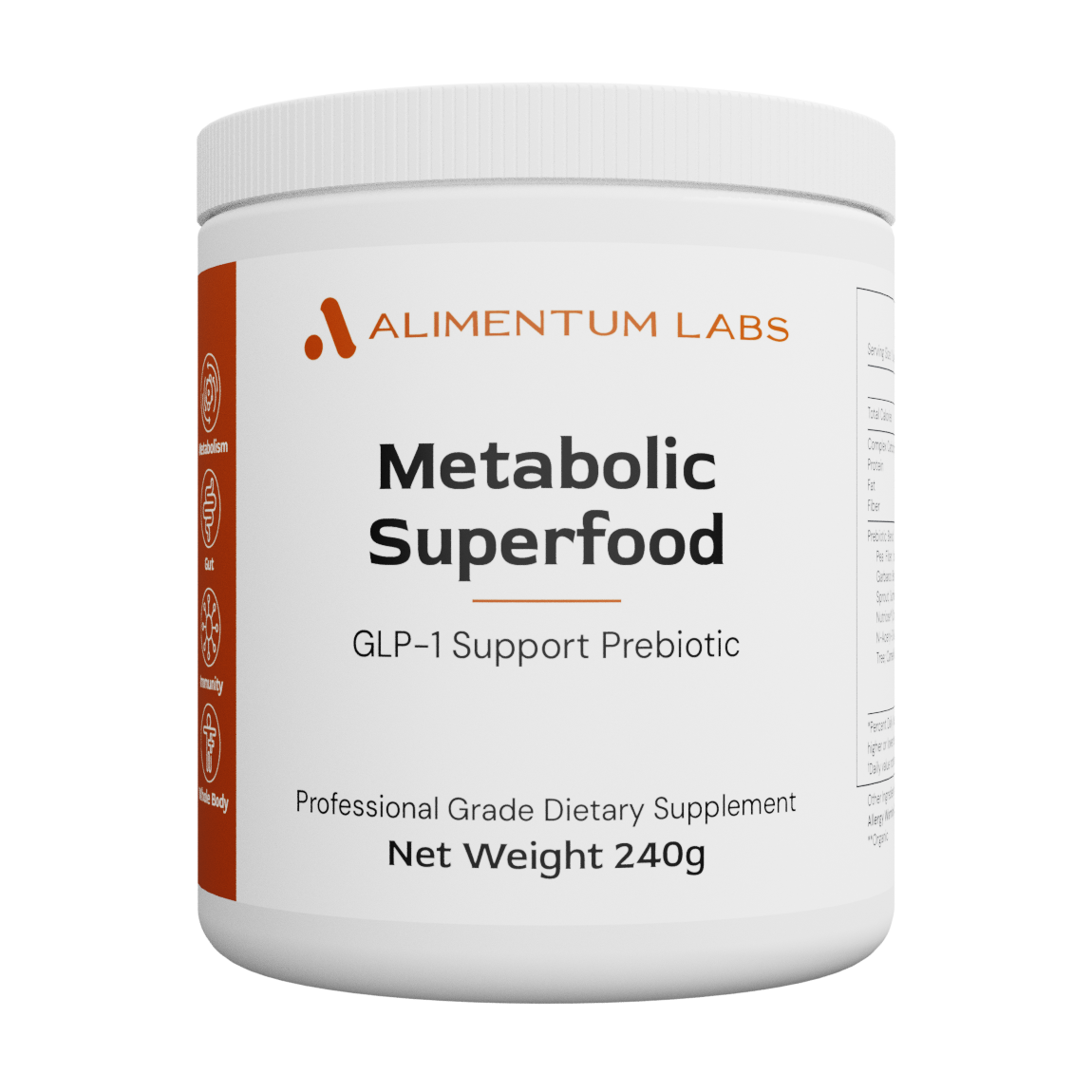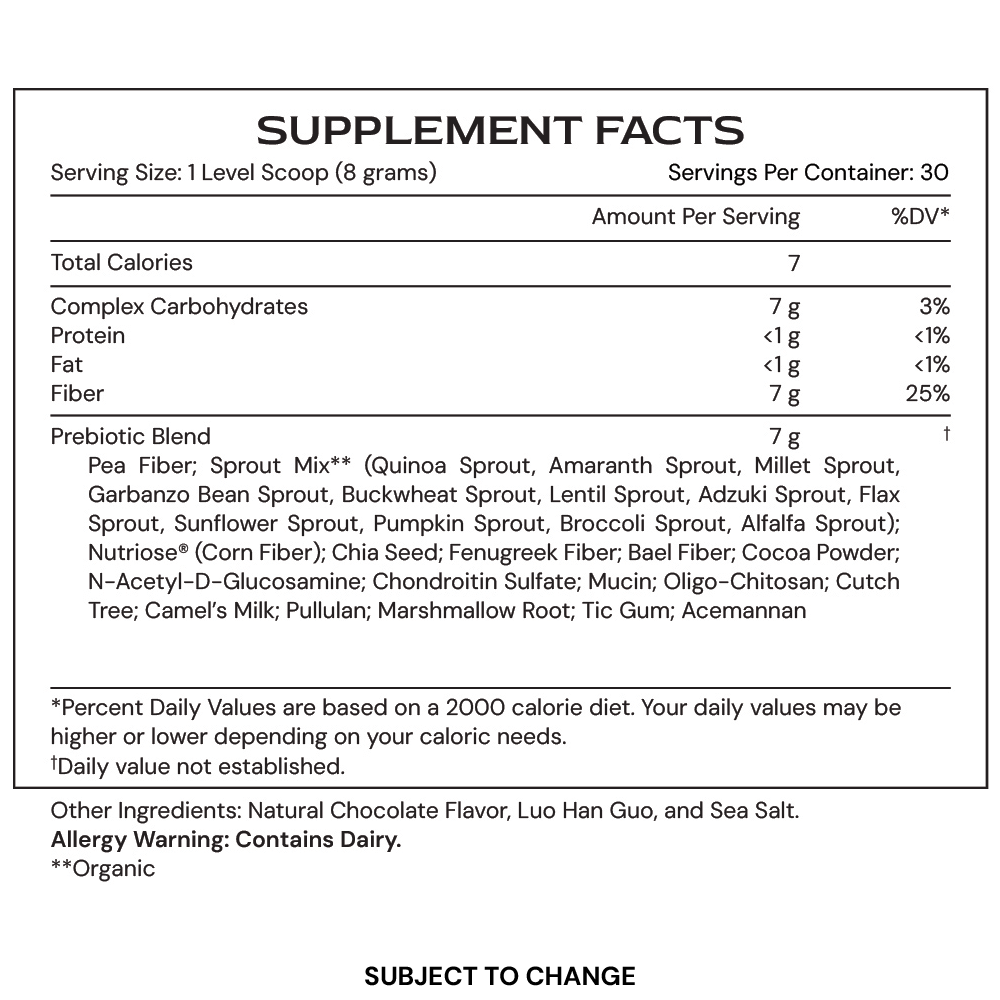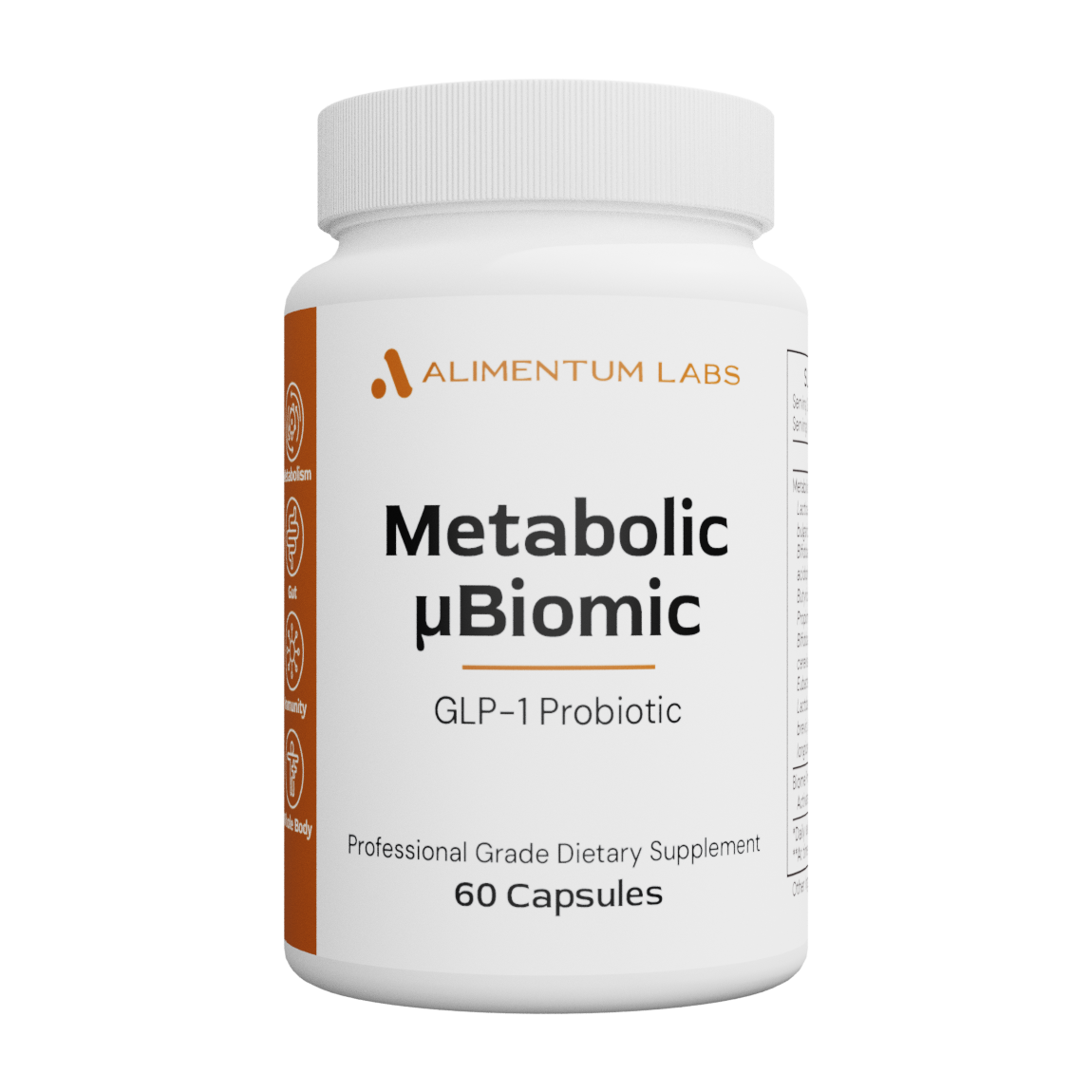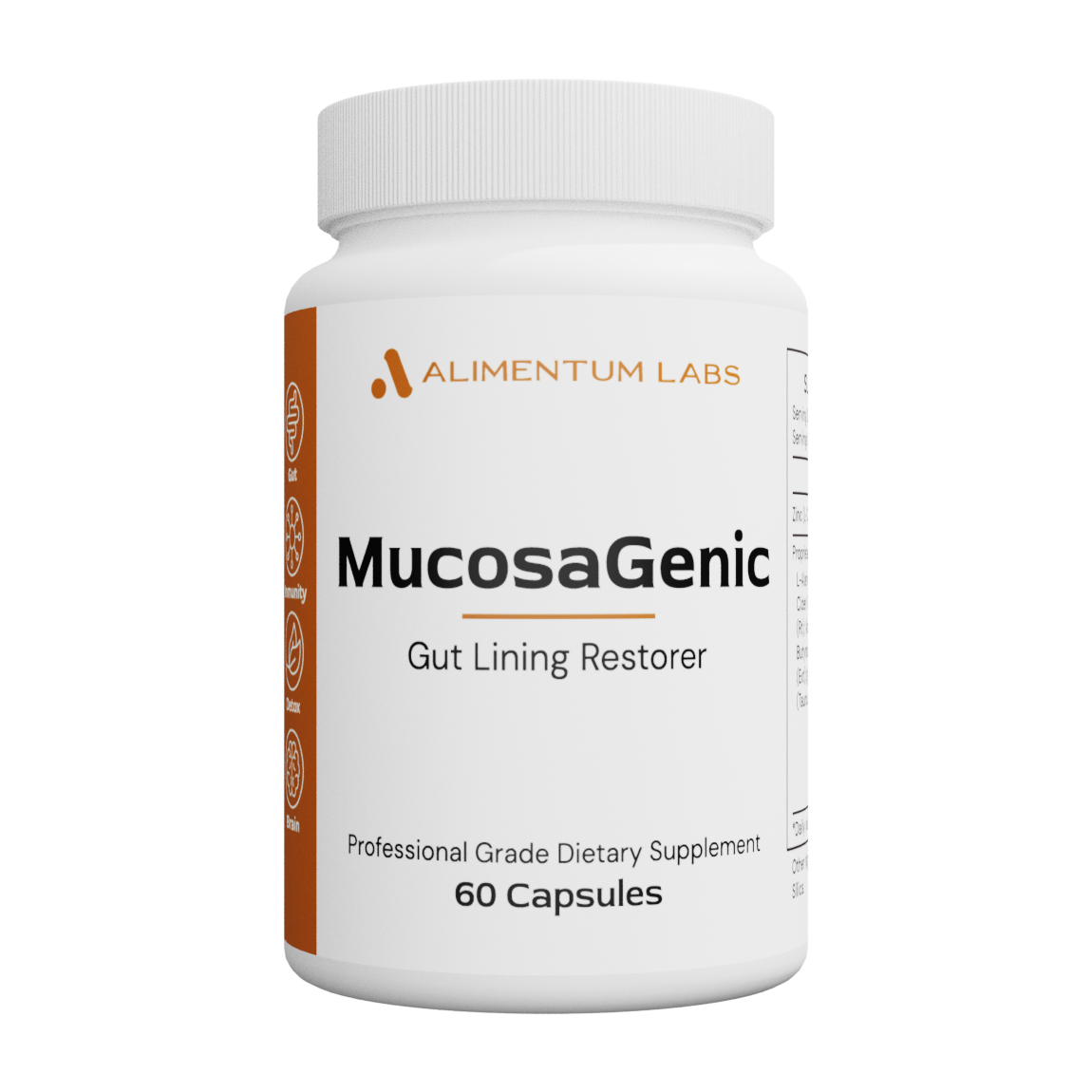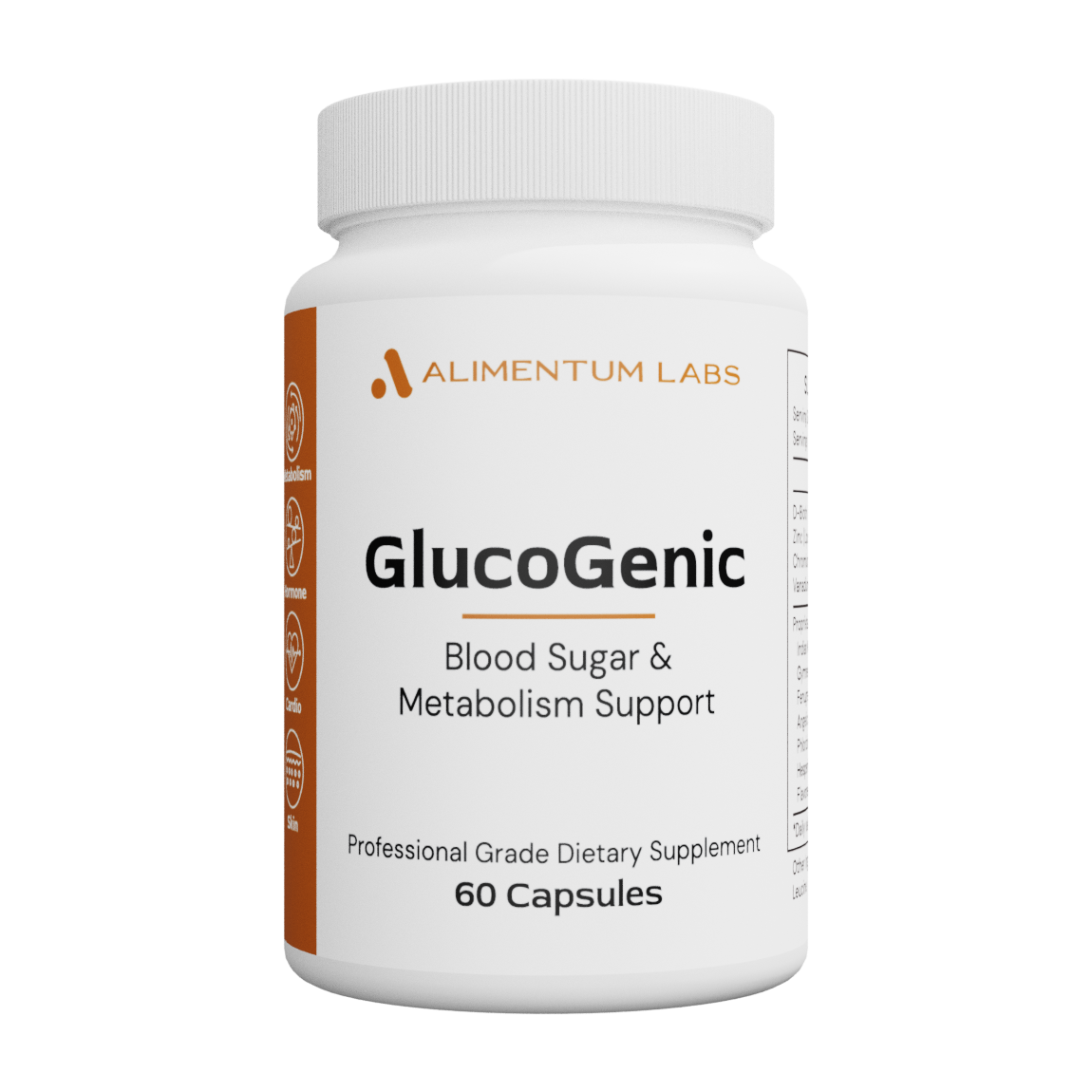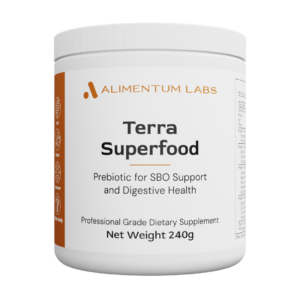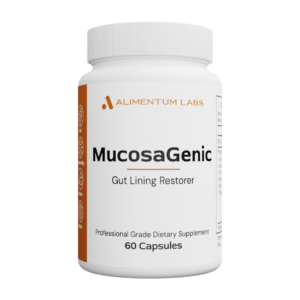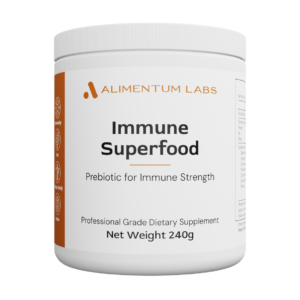Description
In Depth
Metabolic Superfood by Alimentum Labs is a next-generation prebiotic formula designed to support optimal metabolic health by nurturing a balanced gut microbiome. This powerful blend helps regulate blood sugar levels and promote healthy weight management through GLP-1 modulation in L cells. By feeding the specific strains of beneficial gut bacteria found in Metabolic µBiomic, Metabolic Superfood enhances fat metabolism, reduces inflammation, and supports overall metabolic balance.
With its ability to stabilize critical metabolic processes, this prebiotic superfood formula helps you achieve sustained energy, better mood, and a healthier, more active future, making it an essential investment in your overall well-being.
Key Features
- Bael fiber, derived from the Aegle marmelos tree, helps regulate the metabolism of fats and lipids, which may alleviate the effects of a high-fat diet. Its ability to reduce insulin resistance contributes to improved blood sugar control, while also inhibiting fat accumulation. Studies suggest that Bael fiber can reduce body mass index and lower blood lipid levels by modulating key metabolic pathways, such as enhancing fat oxidation and improving glucose metabolism, ultimately supporting a balanced metabolic environment.
- Fenugreek fiber in Metabolic Superfood supports a healthy gut environment by promoting the growth of beneficial bacteria like Akkermansia, which helps improve metabolic function. By enhancing the metabolism of cholesterol and increasing the production of coprostanol, Fenugreek fiber contributes to better lipid profiles and overall cardiovascular health. Additionally, it supports appetite regulation by modulating key hormones, promoting balanced blood sugar levels and aiding in weight management.
- Cutch Tree Acacia in Metabolic Superfood provides powerful antioxidant support through its flavonoids, such as catechin and epicatechin, which help reduce oxidative stress and improve metabolic health. By promoting a healthy gut microbiome, these compounds support the regulation of blood sugar levels and improve insulin sensitivity, while also enhancing cardiovascular function. This synergistic action contributes to maintaining a balanced metabolism and healthy weight management.
- N-Acetyl D-Glucosamine in Metabolic Superfood supports a healthy gut by strengthening the intestinal lining and reducing inflammation, creating a more favorable environment for beneficial bacteria. By promoting gut health and reversing dysbiosis, it helps improve nutrient absorption, which contributes to better blood sugar regulation. This, in turn, supports a balanced metabolism and can assist in maintaining a healthy weight through optimal metabolic function.
- Mucin in Metabolic Superfood helps support a healthy gut environment by promoting the growth of beneficial bacteria like Akkermansia muciniphila, which thrives on mucin as a primary energy source. By fostering the growth of these beneficial microbes, mucin contributes to a stronger intestinal barrier and reduced inflammation, which is essential for maintaining balanced blood sugar levels. This process supports optimal metabolic function and helps maintain a healthy weight through improved gut health and nutrient absorption.
White Paper
The White Paper is your comprehensive guide to understanding this product. It details the ingredients, their functions, and how they work together to deliver results. Complete with usage guidance and safety information, it’s an invaluable resource for anyone seeking a thorough understanding of this formula.
Essential Ingredients
- Bael Fiber
- Fenugreek Fiber
- Cutch Tree Acacia
- N-Acetyl D-Glucosamine
- Mucin
Directions
Mix 1 scoop into 8-16 oz. of your choice of liquid daily, or as directed by your health care provider.
Warnings
Keep away from heat, sunlight, and out of the reach of children. Allergy warning: contains dairy.
Quality Guarantee
cGMP facility
Non-GMO
Gluten Free
No Sugar
Frequently Asked Questions
Who should take Metabolic Superfood?
Metabolic Superfood is perfect for anyone looking to optimize metabolic health, support weight management, regulate blood sugar, and improve gut health, especially those with active lifestyles, busy schedules, or concerns about maintaining energy and overall wellness. It’s ideal for individuals seeking to boost metabolism, improve fat metabolism, and promote long-term vitality.
How should I take Metabolic Superfood?
To take Metabolic Superfood, mix 1 scoop into 8-16 oz. of your choice of liquid daily, or as directed by your healthcare provider. For optimal results, take it with Metabolic µBiomic and incorporate it into a balanced diet and active lifestyle.
Can I take Metabolic Superfood with other supplements?
Yes, you can take Metabolic Superfood with other supplements. In fact, it was designed to be taken with Metabolic µBiomic and other Alimentum Labs products that support a healthy metabolism for optimal results. However, it’s always a good idea to consult your healthcare provider first to ensure there are no potentially harmful interactions with other supplements or medications you are currently taking.
Can I take Metabolic Superfood if I'm pregnant?
Yes, Metabolic Superfood can be taken while you are pregnant. However, it’s important to consult with your healthcare provider before taking Metabolic Superfood or any supplement. While the ingredients are generally safe for most people, your healthcare provider can help determine if it’s appropriate for your individual needs during pregnancy.
Why is N-Acetyl D- Glucosamine important for strengthening the intestinal lining?
N-Acetyl D-Glucosamine (NAG) is important for strengthening the intestinal lining because it plays a key role in maintaining the integrity of the gut’s protective barrier. NAG increases the expression of occludin, a tight junction protein that helps seal the spaces between intestinal cells. This strengthens the intestinal lining, reducing its permeability and preventing harmful substances from leaking into the bloodstream. By supporting the intestinal barrier, NAG helps reduce inflammation, improve nutrient absorption, and maintain overall gut health, which is essential for optimal metabolic function and balanced blood sugar levels.
How does Metabolic Superfood help regulate blood sugar?
Metabolic Superfood helps regulate blood sugar by supporting a healthy gut microbiome with prebiotics that enhance insulin sensitivity and improve the body’s ability to process glucose. The blend of ingredients nurtures beneficial gut bacteria that play a crucial role in stabilizing blood sugar levels and promoting balanced metabolic function.


